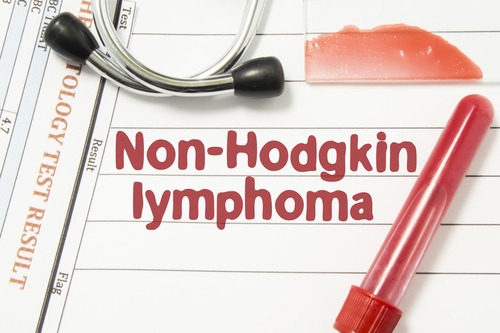Treating non-Hodgkin’s lymphoma patients with radiation before giving them CAR T-cell therapy may lessen the likelihood of them experiencing toxic side effects, a small study suggests.
This finding was detailed at the 2019 American Society for Radiation Oncology Annual Meeting, in the presentation “Induction Radiation Prior to Commercial Chimeric Antigen Receptor T-Cell Therapy for Relapsed/Refractory Non-Hodgkin Lymphoma.”
CAR (chimeric antigen receptor) T-cell therapy works by taking T-cells (a type of immune cell) from a person and modifying them to specifically recognize and kill cancer cells, before infusing the T-cells to the patient.
This therapy has shown effectiveness, particularly for advanced blood cancers like relapsed or refractory non-Hodgkin’s lymphoma. But it carries the risk of side effects like cytokine release syndrome (CRS), a condition characterized by severe flu-like symptoms, fever, breathing problems, and pain; when severe, this syndrome can require intensive care.
Researchers analyzed medical records for 31 non-Hodgkin’s lymphoma patients who had been treated with one of the two commercially available CAR T-cell therapies approved by the U.S. Food and Drug Administration (FDA): Kymriah (tisagenlecleucel; by Novartis) and Yescarta (axicabtagene ciloleucel; by Kite Pharma).
These 31 patients were divided into three groups. Five had been given radiation therapy in the month immediately before CAR T-cell infusion as a ‘bridging’ therapy, seven had received radiation at some point in their treatment but not shortly before CAR T-cell infusion, and 19 had never been treated with radiation.
Standard bridging treatments rely only on chemotherapy, which can be toxic to all cells, the study noted.
None of the five people who received the ‘bridging’ radiation therapy developed severe or life-threatening CRS. In contrast, one patient given non-bridging radiation developed severe CRS, as did five of those never treated with radiation.
Moderate CRS was reported in two patients in the ‘bridging’ therapy group, three in the later radiation group, and five patients in the group that had not received radiation. No significant differences in overall survival or progression-free survival were seen among the groups.
“Our findings suggest that not only does radiation not interfere with the efficacy of CAR T, it may even carry a benefit for [non-Hodgkin’s lymphoma] patients,” John Plastaras, MD, PhD, a study co-author and a professor of radiation oncology at the University of Pennsylvania, said in a press release.
This study on its own is too small to draw reliable conclusions, but in the context of accumulating data after the approval of CAR T-cell therapies, it provides additional evidence for the benefits of radiation.
“Induction RT [radiation therapy] may safely and effectively be used to clinically stabilize patients … facilitating the use of less toxic chemotherapy regimens to allow sufficient CART cell expansion,” the study concluded. “Future work should be undertaken to prospectively test these hypotheses.”


